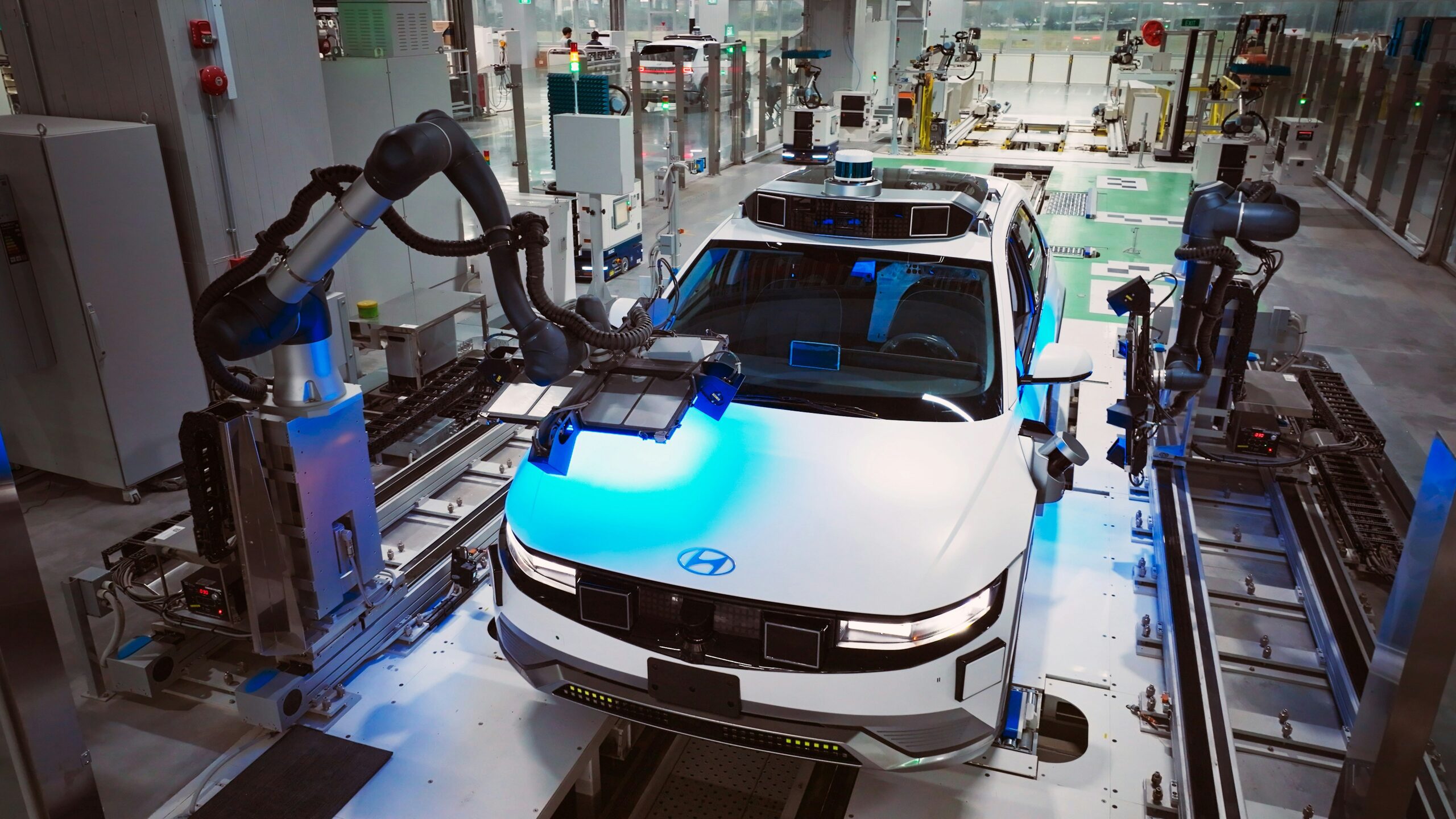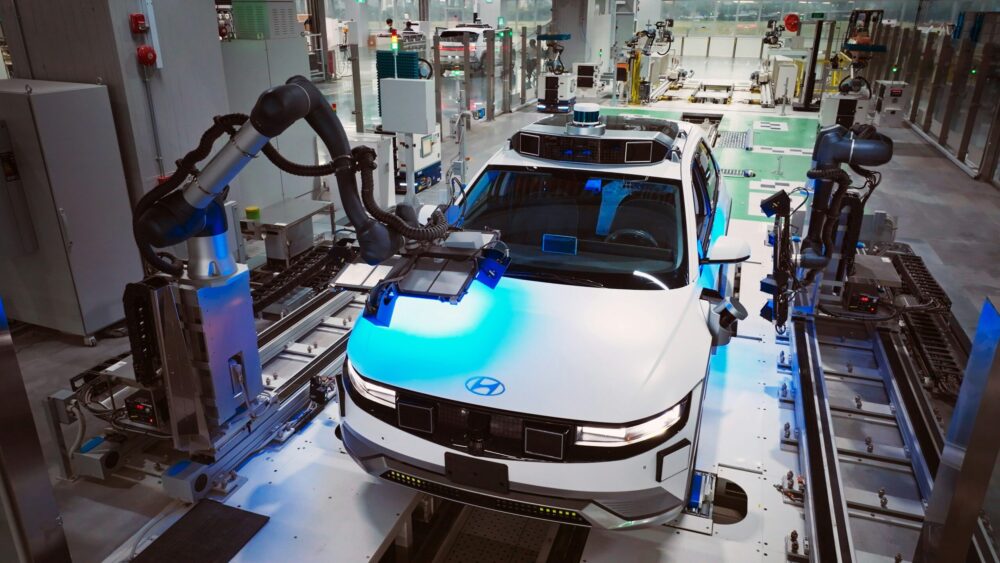~ The irony behind the industry’s rate of technological change ~
Not long ago, the automotive industry was criticised for its slow adoption of new technologies. While 81 per cent of automotive decision-makers say they could better meet business objectives if their organisations made more investments in technology, 78 per cent admitted that their organisation struggles to keep up with the speed of technological innovation. Here, Tom Cash, director of automation parts supplier, Foxmere, explains how manufacturers can bridge the gap between their current capabilities and technological advancements.
Globally, auto sales for this year were projected to grow modestly compared to 2023. Despite a slower growth rate, sales volumes are expected to exceed 92 million units and mark the highest figures since 2018 — a recent report revealed.
This optimistic forecast reflects an ongoing recovery in the automotive market following previous downturns, which were caused by supply chain issues and changing consumer preferences.
However, vehicle production is anticipated to decline slightly as manufacturers work through a faster-than-expected inventory restocking process. This adjustment reflects a response to changing market dynamics and the industry’s ongoing struggle to embrace the technological advancements necessary for future growth.
Stuck in gear
Although the industry is catching up, significant challenges still remain. For instance, advancements in autonomous vehicle technology have been slower than anticipated, with timelines for widespread adoption pushed back by two to three years.
Plus, the automotive industry is experiencing a significant stall in innovation, largely due to its reliance on legacy technologies like process nodes which are used to create semiconductor devices, particularly integrated circuits (ICs).
As semiconductor technology has advanced, manufacturers have continually developed smaller process nodes in line with Moore’s Law, which suggests that the number of transistors on a chip doubles approximately every two years.
However, many modern vehicles still use outdated analog-based components, some of which date back to PC chips from as far as 2005.
Yet many modern vehicles feature autonomous driving functions and enhanced infotainment systems, which require advanced computing capabilities and more powerful and efficient semiconductor chips.
As the supply of these older components diminishes, manufacturers face increasing lead times and shortages. Research indicates that there could be a supply deficit of nearly 30 per cent for integrated circuits built on legacy nodes compared to current demand, with this shortage potentially extending through 2026.
Revving up
With that said, it’s not all doom and gloom in the sector.
The automotive industry is currently adapting to many of the innovations that AI is bringing to the table, particularly in software development and operational efficiency.
In design, automotive engineers and designers are benefitting from a range of AI-powered tools, many from Autodesk AI.
For example, Fusion’s generative design platform can quickly generate thousands of manufacturing-ready designs based on preset parameters, allowing for fast exploration of design options.
AI tools can also automate tasks like transforming 3D models into precise 2D drawings and create toolpaths using CloudNC CAM Assist.
Furthermore, following its acquisition of Blank AI, Autodesk is developing the Form Explorer plug-in for Alias, which uses AI to create editable 3D forms based on text prompts.
Another upcoming Alias plug-in provides AI-driven computational fluid dynamics, simulating a virtual wind tunnel to help engineers analyse vehicle aerodynamics.

Smarter factories
In addition, AI is supporting smart factories in manufacturing, using cloud-connected sensors that continuously collect data from various operations. This data is then processed by AI and machine learning systems, enabling real-time analysis and decision-making.
This connectivity allows businesses to gain insights for increased efficiency, assisting with predictive maintenance strategies to minimise unplanned downtime.
Elsewhere, smart factory AI is optimising robotic processes like assembly, welding and painting. Monitoring with AI also ensures worker safety by flagging unusual robotic activity and minimising human intervention in potentially hazardous tasks.
Modern vehicles are increasingly being equipped with AI-optimised computing systems too, starting with NVIDIA Drive’s high-performance SoCs. These chips enable the AI processes of automated driving functions like computer vision and other heavy data processing.
In-car computers are also often integrated with AI voice assistants. These assistants provide responsive, conversational interactions with the vehicle’s systems, like in the Mercedes-Benz’s MBUX and Volkswagen’s IDA.

Going up the gears
The automotive industry is at a crossroads, a situation that reflects a broader irony. While the automotive sector clearly wants to innovate, it seems to be hindered by its own caution.
A recent global survey of original equipment manufacturers (OEMs) in the automotive sector reflected this notion in the adoption of different emerging technologies.
For instance, just 24 per cent are using machine vision technology today, with 44 per cent planning to adopt it by 2027. Similarly, the use of machine learning is expected to rise by 70 per cent, with a current adoption rate of 27 per cent projected to jump to 46 per cent.
To bridge these gaps, automotive decision-makers can make gradual technological upgrades that align with both immediate business needs and long-term strategic goals by investing in incremental innovations.
Whether through AI-driven tools or integrating sensors into production lines for smarter manufacturing processes, companies can stay competitive without the cost of overhauling their entire operational framework.
At Foxmere, this is a challenge we understand and often see when assisting manufacturers with their digitalisation efforts or automation needs to keep production lines moving and efficient.
Contact Foxmere today for more information or a no-obligation quote.








